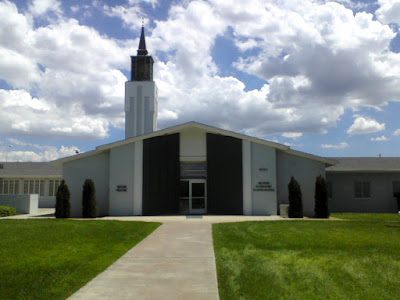This is a follow-up to a blog post from 2014. (For the earlier post, click here.)
I freely admit that I'm not a native speaker of Spanish, but my Spanish is not bad by Gringo standards. I have tried hard to learn the language in my adulthood, and improve it along the way. I have talked in a previous blog post about my taking college Spanish classes, watching movies with Spanish subtitles, reading scriptures in Spanish, and attending Spanish-language church services. In this blog post, I will try to update what I said earlier, and give some additional comments on Spanish endeavors that I have undertaken since then.
The church building where I attended Spanish-language church services in Prescott, Arizona











